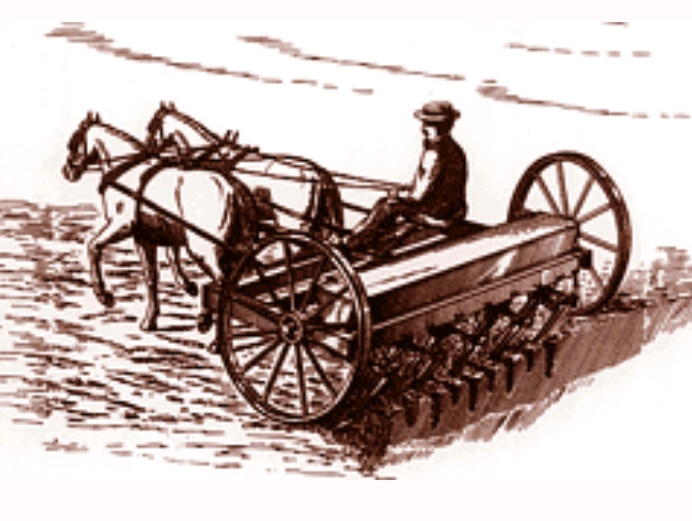Since the end of regional governments, Nigeria recurring agricultural policies have consistently failed to yield tangible results. It is, thus, crucial for the new government to devise robust plans and take proactive measures to unlock the full potential of the Nigerian agricultural sector. This blog post explores the practicality and benefits of transforming local councils into Agricultural Development Centres in a creative approach to improve farming methods, enhance productivity, and stimulate overall economic growth in Nigeria.
Nigeria is a nation blessed with abundant natural resources and a vibrant population. Despite this endowment, the country heavily relies on the importation of almost all essential commodities for domestic consumption due to low productivity. This peculiarity impedes its economic growth, creates jobs for those producing nations, and leads to unemployment within Nigeria. To escape the current economic challenges, it is imperative to shift Nigeria’s economic policy towards agriculture and small-scale industrialization.

Throughout history, agricultural revolutions have played a pivotal role in driving industrial progress. The British agricultural revolution of the eighteenth century and the United States agricultural revolution of the late nineteenth century are prime examples. These revolutions increased crop production and laid the groundwork for the industrialization of these great countries. Likewise, Japan’s Meiji Restoration and Germany’s adoption of innovative agricultural methods propelled their industrial growth. These instances highlight the interdependent relationship between agricultural advancements and subsequent industrial revolutions.

Accordingly, it is time for Nigeria to recognize the critical role of agriculture in ushering in an era of industrial revolutions. With abundant land resources and favourable climatic conditions, Nigeria possesses the inherent potential to become a global agricultural powerhouse. However, the predominant focus on traditional farming methods is insufficient to meet the growing demands for food and raw materials. Embracing modern farming techniques is essential to catalyze a remarkable transformation of the agricultural sector, paving the way for unparalleled productivity.

However, traditional farming methods are labour-intensive, time-consuming, and often yield lower outputs compared to mechanized agriculture. Relying on manual labour hinders farming efficiency while depending solely on rain-fed farming restricts productivity to a single yearly harvest. By adopting modern farming techniques that combine advanced machinery and best practices, Nigeria can achieve greater agricultural output and abundant raw materials for industrialization.
Read Also: The Future of Nigeria Without Petroleum Subsidy
Given the financial constraints faced by individual farmers and the numerous responsibilities of federal and state governments, Nigerian local councils can play a crucial role in driving the adoption of mechanized agriculture. Therefore, transforming local councils into Agriculture Development Centres will leverage their proximity to rural areas and understanding of local farming needs to make a real difference in agricultural development.

With its deep understanding of the specific needs and challenges faced by rural farmers, the involvement of local government councils will catalyze change and ensure that the agricultural sector receives the attention it deserves. Thus, repurposing local councils into Agricultural Development Centres will unlock Nigerian immense potential for productivity and economic growth.
Key Initiatives for Repurposing Local Councils for Agricultural Transformation
Creating Mini-Research Centers for Agricultural Assistance: Local councils can collaborate with agricultural research institutes and experts to establish mini-research Centres that will serve as knowledge hubs, provide essential information, enhance skills, facilitate technology transfer, organize training programs on pest and disease management, on post-harvest handling and sharing the latest agricultural practices that offer support to farmers within their jurisdictions. Adopting this data-driven approach will empower farmers to make informed decisions about crop selection and enable them to maximize productivity while minimizing risks.

Crops Specialization: Clustering local councils based on agro-climatic conditions and soil characteristics will allow them to specialize in specific crops suited to their regions. One practical approach to achieve this distribution is to motivate each cluster to focus on cultivating the same crop selected from the varieties of crops that are cultivated in Nigeria and based on specific regional characteristics. This strategic approach will optimize resource allocation, technical support, and extension services, leading to increased crop productivity and economic growth.

Land Preparation and Distribution: Equipped with the knowledge of local terrain, Local councils can prepare farmland by ensuring proper land clearance, cultivating, removing obstacles, irrigating, and distributing to farmers. They can also conduct soil assessments to determine the most suitable crops for specific farmland and to enable farmers to make informed decisions and maximize productivity. This will motivate young farmers to embrace mechanized agriculture and benefit from improved farming practices.

Distribution of High-Quality Seedlings: Local councils can take an active role in acquiring and distributing high-quality seedlings to farmers. They can leverage their resources and networks to identify the most suitable seedlings for their respective regions. Distributing these seedlings will help farmers, enhance crop quality, and contribute to overall agricultural growth.
Monitoring and Supervision: Local councils, being closest to the local communities, can play a vital role in monitoring and supervising farms. They can ensure that farmers follow best practices, efficiently utilize resources, and meet quality standards. By upholding accountability and promoting sustainable farming practices, local councils can boost the productivity and long-term sustainability of mechanized agriculture in their domain.
Read Also: 2023 Population Census: A Necessity for Addressing Nigeria’s Problems
Establishment of Local Marketing Boards: To facilitate marketing and fair pricing for farmers, local councils should establish local marketing boards. These boards will act as intermediaries between farmers and buyers, creating centralized platforms for agricultural product transactions. By streamlining the marketing process, local councils can help farmers access better market opportunities and negotiate favourable prices for their products, thus enhancing the economic growth of the agricultural sector.
Market Linkages and Value Addition: Local councils can facilitate market linkages between farmers and agribusinesses, processors, exporters, and other stakeholders. They can establish partnerships with private companies to promote value addition and agro-processing within their jurisdictions. This collaboration can lead to the establishment of food processing units and packaging facilities, thereby creating employment opportunities and increasing the value of agricultural products.
Building Silo Storage Facilities: The federal government should construct silo storage facilities across the country to preserve the excess agricultural harvest and reduce post-harvest losses. These silos should be strategically located to serve the clusters of neighbouring local governments that specialize in cultivating specific crops. By ensuring the availability of storage facilities, farmers can preserve their produce, have a steady supply of food during periods of scarcity, and contribute to food security and economic stability.

Farm Equipment Leasing and Input Support: Local councils can collaborate with foreign farm equipment companies to establish equipment leasing arrangements for farmers. This partnership would allow farmers to access modern machinery and essential resources needed for mechanized farming, even if they cannot afford to purchase the equipment outright. The leasing payments can be facilitated through the local marketing boards, ensuring responsible repayment and enabling farmers to improve their productivity and crop yields.

Funding: With the support of the federal government, local councils can borrow funds using their monthly allocations as collateral. This would provide the necessary resources to support farmers with inputs required for agricultural activities. To ensure that the borrowed funds are used responsibly and repaid, it is suggested that traditional kings and village heads are involved as guarantors for these loans. Their participation in the borrowing process would add credibility and accountability. Additionally, the government can establish agricultural development funds specifically allocated to local councils, providing financial assistance and grants for infrastructure development, training programs, and research initiatives.
Development of Special Agro-Industrial Processing Zones: Proximity to raw materials plays a pivotal role in attracting foreign direct investment. Local councils can collaborate with private companies, investors, and agribusinesses to establish agro-industrial zones, processing centres, and farm estates in locations that possess a stable and abundant reservoir of raw materials. The introduction of Special Agro-industrial Processing Zones throughout the clusters of neighbouring local governments that cultivate the same crops will present a significant advantage in attracting foreign investment to the rural areas, creating employment opportunities and fostering economic development in rural areas.
By implementing these strategies, local councils in Nigeria can emerge as dynamic agricultural hubs, driving sustainable agricultural growth, reducing poverty, and promoting rural development. The active involvement and collaboration of local government councils, along with the support of the federal government and relevant stakeholders, will be instrumental in realizing the full potential of the agricultural sector and ensuring food security and economic prosperity for the nation.

In conclusion, local councils in Nigeria have a crucial role to play in advancing the agricultural sector and promoting rural development. By implementing a comprehensive set of strategies that focus on farmer support, infrastructure development, market linkages, research and development, and collaboration with stakeholders, local councils can create an enabling environment for agricultural growth. The active involvement and support of the federal government, private sector, and agricultural institutions are vital for the success of these initiatives. With concerted efforts and effective implementation, local councils can contribute to the transformation of Nigeria’s agricultural landscape, unlock Nigerian immense potential for productivity, improve food security, increase rural incomes, and drive sustainable economic development for the benefit of the nation as a whole.
Idowu E. Faleye, a certified Data Analyst, Political Activist, and writer, is a graduate of Politics & Public Administration. He’s the Founder/Chief Data Officer at EphraimHill Data Blog –a Data Reporting Site that is niche in Politics & Society. He can be reached at +2348132100608. or ephraimhill01@gmail.com












































![The Trend of Insecurity in Nigeria. [Part 2]](https://ephraimhilldc.com/wp-content/uploads/2024/09/Computer-Monitoring-of-Remote-areas.png)


































